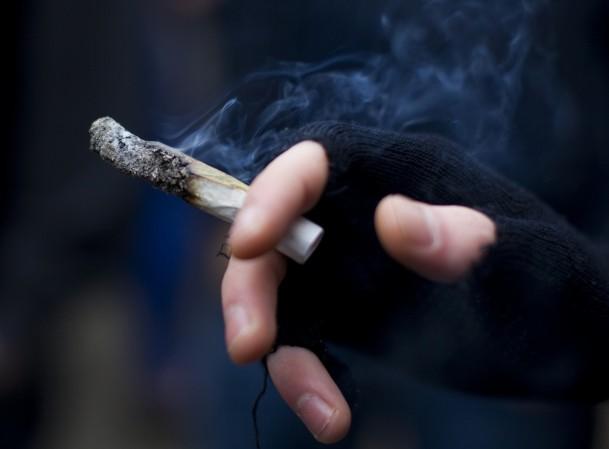Marijuana has been a sensitive topic in several states across the US as the country evaluates its stand on whether to legalize the drug for medical purposes. Ahead of Oklahoma's chance to vote for or against legalizing medical marijuana, a Texas-based addiction psychiatrist presented the Oklahoma Medical Board with his findings on the risks associated with the drug.
Numerous studies have been conducted on the use of marijuana and its impacts on health, but there is still nothing concrete on whether marijuana is more helpful or harmful. The Texas doctor's claims are rather intimidating, as he has based his conclusions about marijuana's risks on human health on a 2012 study, Newsweek reported.
2012 study warns against marijuana use among teens
Referring to a 2012 study by the Proceedings of the National Academy of Sciences of the United States of America or PNAS, Dr Harold Urschel, chief medical strategist for EnterHealth — an addiction treatment program in Dallas — told the Oklahoma Medical Board that use of marijuana lowers IQ and raises heart attack and stroke risks significantly.
Speaking to KOCO News 5 local channel in Oklahoma, Urschel said: "For teenagers, it (marijuana) decreases your IQ by eight points, which is a significant drop. It causes significant risk of heart attacks, lung cancer. Doubles your risk of stroke.
![In picture, a strain of medical marijuana [Representational Image] medical marijuana](https://data1.ibtimes.co.in/en/full/677556/medical-marijuana.jpg?h=450&l=50&t=40)
"We see a lot of the devastation caused by marijuana and other drugs as well. Probably 20 percent of our patients are addicted to marijuana. For the couple of hours you're feeling the high, you do feel better. But then it wears off, and the injury it does to your brain makes the symptoms two or three times worse the more you need marijuana again."
Urschel said marijuana use in teenagers causes irritability, insomnia, difficulty with memory and concentration. But any significant adverse effect on health caused by marijuana use has been debated. There are several reference studies that contradict Urschel's statements.
Other studies support Urschel's views
Other studies conducted on the use of cannabis have given varying results on its impact on health. For instance, researchers at the University of Montreal recently found that if an occasional marijuana user increases consumption to every day, the risk of psychosis increases by up to 159 percent.
Another study from the University of Pittsburgh revealed the use of marijuana in teenagers increases the risk of depression and also leads to poor educational achievements in the future.

"Though the results do not show a direct causal link, it's important to note that even though most people think marijuana isn't harmful, it may have severe consequences for some people's functioning, education and mood. While that may seem unimportant at age 20, the level of education you receive will likely have a huge effect on your quality of life and socioeconomic status later in adulthood," Erika Forbes, PhD, and a professor of psychiatry, psychology and pediatrics, said.
Limitations of 2012 study on the risks of marijuana use
The 2012 study Urschel based his statements on showed teenagers under 18 who smoked marijuana heavily had an eight-point reduction in IQ. But legalization of medical marijuana in Oklahoma or any other US state would give access to those who are 18 or more.
The 2012 study by PNAS also warned about the health risks in teenagers considering their brain is still in the developing stage. There hasn't been any significant impact of marijuana use on adults.
Marijuana isn't as dangerous as portrayed
According to a study published in the PNAS journal in 2016, long-term analysis on habitual marijuana use in one of the identical twins did not reveal any effects on the IQ. The study concluded without any measurable link between marijuana use and lower IQ being established.
Researchers from Arizona State University conducted a study in 2017 on nearly 2,000 twins and that research strongly contradicts the 2012 study. The results from last year's research revealed cannabis use in teenagers aged between the age of 12 and 18 does not lower IQ.

It's worth mentioning that legalization of medical marijuana will grant cannabis access to prescribed patients aged at least 18 years old.
Doctors will recommend a state-issued medical marijuana license, which would allow legal possession of 3 ounces of flower, six mature plants and six seedlings, according to Oklahoma's proposed State Question 788 bill.
Marijuana legal states in some US states
In the United States, the following states have legalized medical marijuana:
Arizona
Arkansas
Connecticut
Delaware
Florida
Hawaii
Illinois
Maryland
Michigan
Minnesota
Montana
New Hampshire
New Mexico
New Jersey
New York
North Dakota
Ohio
Pennsylvania
Rhode Island
Washington DC
West Virginia
Recreational marijuana use is legal in these states:
Alaska
California
Colorado
Maine
Massachusetts
Nevada
Oregon
Vermont
Washington















